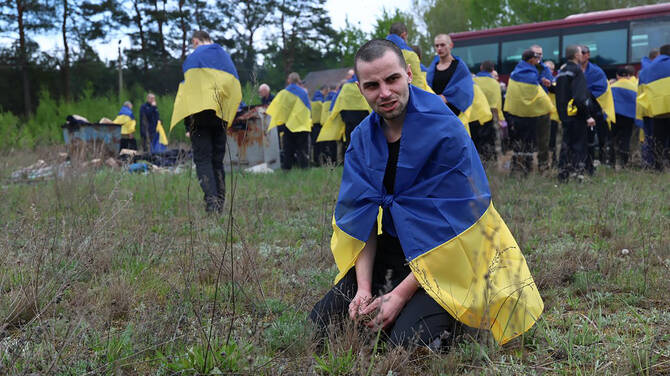BEIRUT: Caretaker Prime Minister Najib Mikati inspected the border area between Lebanon and Israel in an unannounced visit to the south on Tuesday, where he stressed “Lebanon’s respect for all international legitimacy resolutions and its commitment to implementing Resolution 1701.”
Tensions have flared between the two countries in recent weeks as a result of Israel’s assault on the Gaza Strip following an attack by Hamas that left over 1,400 Israelis dead on Oct. 7.
Under the international resolution, UNIFIL is responsible for assisting the Lebanese government in securing Lebanon’s borders.
Mikati, accompanied by Army chief Gen. Joseph Aoun, stressed that “the logic of force adopted today in the face of what’s deemed righteous is not appropriate at all times. What is required is to return to the logic of righteousness according to the charter of the United Nations and the Universal Declaration of Human Rights.”
Mikati was briefed on the tasks carried out by the Armed Forces in cooperation with UNIFIL. He visited the headquarters of the South Litani Sector Command in the city of Tyre and met with sector commander Brig. Gen. Rodolph Haikal and leaders of units deployed in the south.
Mikati and Aoun then moved to the UNIFIL headquarters in Naqoura and met with force commander Maj. Gen. Aroldo Lazaro Saenz in the presence of senior officers from UNIFIL and the Lebanese Armed Forces.
According to his media office, Mikati praised “UNIFIL’s role in maintaining stability in the south in full cooperation and coordination with the army.”
Mikati called for a “ceasefire in Palestine, an end to Israeli crimes, and a stop to Israeli violations of Lebanese sovereignty.”
The two also visited the headquarters of the 5th Infantry Brigade in Biyyadah and met with brigade commander Gen. Edgard Laundos.
Aoun stressed that the Lebanese Armed Forces were “maintaining readiness at the southern border, in conjunction with carrying out various missions inside the country.”
He praised “the solid will of the soldiers and their belief in the sanctity of the mission.”
The Lebanese Armed Forces and the Red Cross evacuated one dead and four wounded to the Marjayoun Governmental Hospital, while Hezbollah mourned four of its members, bringing the number of Hezbollah members killed since the start of military operations in southern Lebanon to over 30.
Hezbollah’s Deputy Secretary-General Sheikh Naim Qassem reiterated on social media that the party is “at the heart of the resistance battle to defend Gaza and confront the occupation and its aggression in Palestine, Lebanon, and the region, and its hand is on the trigger to the extent it deems necessary in the confrontation.”
Qassem said “the Israeli aggression against Gaza is not a war, but rather the killing of civilians, children, and women and the destruction of homes. The responsibility here falls on the US and Europe in addition to the Israeli entity.”
On Tuesday afternoon, the Israel Defense Forces announced that “a Kornet (anti-tank) missile has been fired from Lebanon toward the Shtula settlement in the Galilee.”
Meanwhile, on the occasion of the 78th anniversary of the UN, its Special Coordinator for Lebanon Joanna Wronecka said the organization is strongly committed to supporting Lebanon safeguard its security and stability as the Middle East region faces a critical time.
“Sadly, the risks to peace and security are rising for Lebanon and the region, but we should never give up on the prospects of peace and of promoting a more sustainable future for the people of Lebanon,” she said.
Noting with deep concern the continuing exchanges of fire across the Blue Line, the special coordinator appealed for de-escalation, a halt to the violence and restoration of calm in the area. “It is more urgent than ever for hostilities to cease and for Security Council Resolution 1701 to be implemented in its entirety.”
The special coordinator said the UN, with its 26 different agencies, funds and programs in the country, had increased its support to Lebanon during the past few years in response to mounting challenges. These efforts cover the whole spectrum of the UN’s political and peacekeeping work, development efforts, humanitarian support and respect for human rights, in an approach that is inclusive and focused on leaving no one behind.
While the UN is currently coordinating emergency and preparedness plans, active efforts are also underway with international partners to help protect Lebanon from conflict and safeguard its security and stability.
These efforts notwithstanding, the special coordinator said sustainable peace can only come from within. “This is the time for strengthening national unity and collective solidarity to face these challenging times for Lebanon,” she said.
“The best way to do so is by strengthening and fortifying the country’s state institutions, including with the election of a new President without further delay.”



























